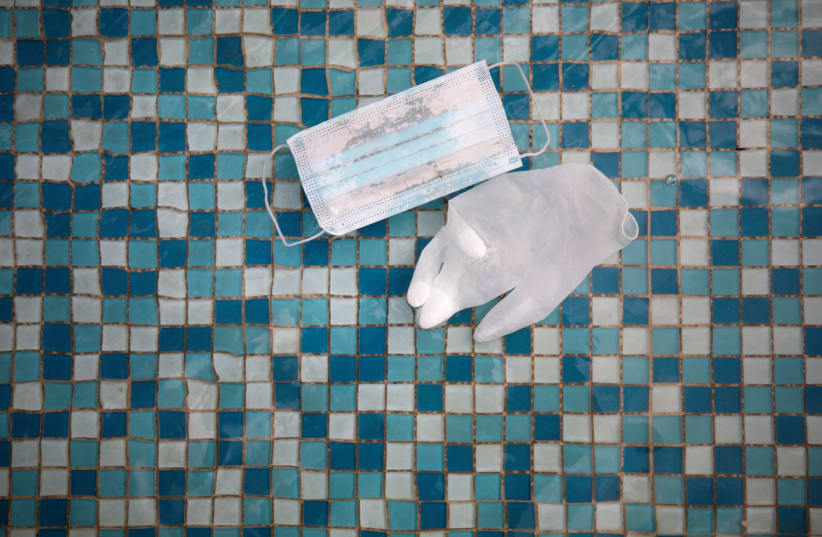There were 7,326 new cases Friday, the Health Ministry reported on Saturday night - 8.8% of the people screen tested positive, representing a slight decrease from the days before. Some 8.9% of people screened Thursday were found to have the virus, versus 9% on Wednesday and 9.2% before that.
However, the ministry reported that only 85,739 people were tested for coronavirus on Friday and 81,828 on Thursday, as opposed to the more than 100,000 in previous days that resulted in 10,000 cases.
The highest rates of infection remain among the ultra-Orthodox, where the British and potentially other mutations are active. Jerusalem had the highest number of active cases with 15,197, Bnei Brak had 5,319 and Modi’in Illit has 3,119.
The percentage of positive cases should go down since the reproduction rate – the “R” or number of people each sick person infects – has finally dropped to below one in all sectors.
As the numbers decline, the hope is that the lockdown will be lifted as announced, on January 31.
Coronavirus commissioner Prof. Nachman Ash said on Thursday in an interview with Channel 12 that he is optimistic that no further extension will be needed.
“The data is encouraging,” Ash said. “We hope that the trend will continue.”
There are currently 76,783 active cases of coronavirus in Israel, among whom more than 1,000 remain in serious condition, including 335 who are ventilated - one of the highest numbers since the start of the crisis.Herzog Hospital in Jerusalem, for example, hit a peak on Friday with 122 COVID-19 patients, including 24 who were admitted on Thursday alone. The hospital has made efforts to take additional coronavirus cases in order to offer some relief to Shaare Zedek and Hadassah-University medical centers in Jerusalem, which are overcrowded. Some 50 of Herzog's patients are in serious condition, including two who are intubated. Sixty-seven people died over the weekend, leaving the country's death toll at 4,326.
On the other hand, Israel has reached another peak in daily vaccinations: 224,000 Israelis were vaccinated on Thursday, Health Minister Yuli Edelstein reported. In total, 2,492,196 people have received at least their first jab and another 939,827 both jabs as of press time on Saturday night. More than 200,000 Israelis are eligible for their vaccination certificates. Thousands of high school students age 16-18 will also now be able to get vaccinated. The Health Ministry confirmed late Thursday that beginning next week, these teens could get the jab. The Health and Education ministries will work together with the health funds to formulate a logistical plan to promote the student vaccination campaign.
“Education must be our top priority,” Blue and White leader and Alternate Prime Minister Benny Gantz said. “After we have ensured that the teachers are vaccinated, we must make sure that the youth can attend their exams and return to the school framework as soon as possible.”Regarding travel, a government decision to require anyone entering the country to show a negative coronavirus test goes into effect Saturday night at midnight.On Friday afternoon, the Health Ministry set out a memo explaining that any person wishing to board a flight to Israel will be required to present the air carrier with a negative coronavirus test that was taken within 72 hours of the flight, or a vaccination certificate provided by the Health Ministry.
The requirement goes into effect at midnight on January 23.A PCR, gold-standard molecular test is required.
In addition, any person who leaves Israel before seven days have passed since receiving their second shot of the coronavirus vaccine will be required to enter isolation according to ministry guidelines on their return, the Health Ministry clarified.
The rules will apply to all incoming travelers, including those who booked two-way flights that keep them out of the country for more than 72 hours.
Exceptions will be granted on a case-by-case basis.
